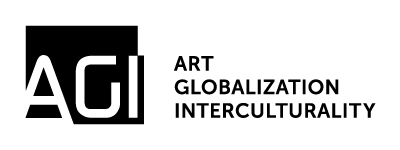Mutating Ecologies in Contemporary Art
I International Symposium
December 1, 2016, Barcelona, Spain
Organizing Team
Production and organization: AGI | Art Globalization Interculturality, Universitat de Barcelona
Director, coordinator & moderator: Christian Alonso, University of Barcelona
In collaboration with: MACBA | Museu d’Art Contemporani de Barcelona and Translocal Institute for Contemporary Art (Budapest)
Keynote Speakers:
Maja & Reuben Fowkes, Translocal Institute, Budapest
Anna Maria Hällgreen, Stockholm University
Mitra Azar, Artist
Joana Moll, Hangar – VIT / VIC
Laura Benítez, EINA, Universitat Autònoma de Barcelona
María Heras, ICTA, Universitat Autònoma de Barcelona
Aleksandra Jach, Muzeum Sztuki in Łódź, University of Warsaw
Marta Dahó, University of Barcelona
Radek Przedpelski, Trinity College, Dublin
Helena Torres, Researcher
Fiona Curran, Royal College of Art, London
Christine Mackey, Artist
Pablo de Soto, Researcher
Ila Nicole Sheren, Washington University in Sant Louis
Program
8:30 – 9:-00 am
PRESENTATION & INTRODUCTION
Anna Maria Guasch and Christian Alonso, Universitat de Barcelona
9:00 – 9:30 am
KEYNOTE TALK
Art and Ecology in Times of Deviant Democracy
Maja and Reuben Fowkes, Translocal Institute, Budapest
9:30 – 10:30 am
DISCUSSION
10:30 – 11:00 am
BREAK
11:00 – 11:15 am
PRESENTATIONS
11:15 am – 13:00 pm
New encounters with time and temporality
Anna Maria Hällgreen, Stockholm University
Anecdotes of life and aphorisms of thought
Mitra Azar, Artist
Art, Information Flows & CO2
Joana Moll, Hangar – VIT / VIC
Monism, Immanence and Biohacking. Hacking dualistic violence
Laura Benítez, EINA, Universitat Autònoma de Barcelona
DISCUSSION
13:00 – 13:30 pm
LUNCH BREAK
13:30 – 15:00 pm
PRESENTATIONS
15:00 – 16:30 pm
Embodying sustainability: insights and reflections from empirical experience
María Heras, ICTA, Universitat Autònoma de Barcelona
How to deal with toxic lives?
Aleksandra Jach, Muzeum Sztuki in Łódź, University of Warsaw
Like a rolling stone. Traces and transmutations of the mineral in artistic practices
Marta Dahó, University of Barcelona
Onto/aesthics of trans/mutation. Embryo-metallic potentialities in art-works of Alina Szapocznikow, Marek Konieczny and Jerzy Ludwiński
Radek Przedpelski, Trinity College, Dublin
DISCUSSION
16:30 – 17:00 pm
BREAK
17:00 – 17:15 pm
PRESENTATIONS
17:15 – 18:45 pm
The chthulu’s call: art of affections and everyday politics after the Chthulucene Manifesto from Santa Cruz
Helena Torres, Artist, Researcher
Cloud Ecologies: Weather, Pollution, Time, Data
Fiona Curran, Royal College of Art, London
Seed Matter
Christine Mackey, Artist
Anthropocene, Capitalocene, Chthulucene, staying with the trouble in Fukushima
Pablo de Soto, Researcher
Affective Landscapes/Empathic Objects: Digital Documentary and Non-human Ecologies
Ila Nicole Sheren, Washington University in Sant Louis
FINAL PANEL DISCUSSION
18:45 – 19:15 pm
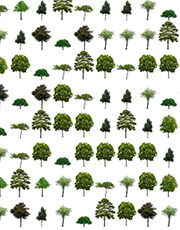 The Anthropocene and climate change not only define the biogeophysical planetary conditions in the early decades of the 21st century but also describe an unprecedented social and cultural space in which environmental crisis coexists with, and is in fact related to, humanitarian disaster and multiple geopolitical conflicts on a global scale. Cognitive capitalism as a historical form of progress and biological essentialism are today being imposed as dominant metanarratives. In this new territory, distinguished by structural inequalities and regimes of deterritorialization and controlled mobility, the governmentality of our technologically-mediated societies operates according to a logic of manufactured risk with economies unfolding on the basis of a delusional boundless availability of natural reserves, ignoring the ecological limits of the planet. The understanding of the multi-faceted implications that these conditions entail for the sphere of relations between human and non-human entities and the configuration of possible political horizons, in other words, the question of how to live together otherwise, remains the fundamental issue of social and human sciences of our time, providing similarly new possibilities for contemporary artistic and cultural production.
The Anthropocene and climate change not only define the biogeophysical planetary conditions in the early decades of the 21st century but also describe an unprecedented social and cultural space in which environmental crisis coexists with, and is in fact related to, humanitarian disaster and multiple geopolitical conflicts on a global scale. Cognitive capitalism as a historical form of progress and biological essentialism are today being imposed as dominant metanarratives. In this new territory, distinguished by structural inequalities and regimes of deterritorialization and controlled mobility, the governmentality of our technologically-mediated societies operates according to a logic of manufactured risk with economies unfolding on the basis of a delusional boundless availability of natural reserves, ignoring the ecological limits of the planet. The understanding of the multi-faceted implications that these conditions entail for the sphere of relations between human and non-human entities and the configuration of possible political horizons, in other words, the question of how to live together otherwise, remains the fundamental issue of social and human sciences of our time, providing similarly new possibilities for contemporary artistic and cultural production.
The neomaterialist geo-ecophilosophical constellation of thought developed by Gregory Bateson, Gilles Deleuze, Félix Guattari, Donna Haraway, Rosi Braidotti and John Protevi constitutes an opportunity with which to reconsider epistemologies and ethics in the Anthropocene, in their gambit for an expanded approach to ecology, that not only includes the natural (environment), but also the social (socius) and the mental (psyche) spheres, linking planetary sustainability as the capability to think through these three registers (Guattari, 1989). In the context of the development of this ethical-political paradigm, and as a way to assume our responsibility in the face of our historicity, our relation to the planet and other species become inseparable from the analysis of the power conditions and relations that define our location. The challenge of our post-human and post-natural condition consists in seizing the opportunities for new kinship systems with sexualized, racialized and naturalized otherness, fostering a life-centred egalitarianism beyond holism, and focussing on the composition of a plane of radical immanence, triggering processes of becoming the others, with whom sustainable relations are built (Braidotti, 2015). These non-anthropocentric and post-humanist ethics, incompatible with the unitary and transcendental subject of Kantian morality, are articulated in the replacement of the logic of the recognition of sameness for trans-species co-dependency, and the philosophy of rights for an ethics of sustainability: the structure of the post-human subject is neither static nor fixed, but post-identitarian, transversal and embedded in multiplicity: an affective, relational and mutating subjectivity.
Artists have been imaginatively working with ecology as an expanded field since the 1960’s, both as instituting practices and as a critique of the role of cultural institutions. Creative transdisciplinary projects have favoured biodiversity and community development in line with a notion of environmental conservation or restoration were among the most representative currents. Today, ecology is a prism through which artists are working with issues related to radical gardening and permaculture, sustainable bio-fuels, micro-economies, speculative design, open-source technologies, food access, biohacking, post-gender subjectivities and sustainable social practices, dismantling traditional oppositional dualisms between mind-body, reason- emotion, human-animal, theory-practice, the material and the discursive, and the actual and the virtual, trying to think life and the world otherwise. The Ist International Symposium Mutating Ecologies in Contemporary Art seeks to deepen this notion of expanded ecologies by examining current transdisciplinary artistic, cultural and curatorial practices that provide different ways to understand, contest and interrogate our relation to the earth through discursive, visual and sensual strategies and methodologies, experimenting beyond disciplinary confinements and generating new subjectivities, new posthuman ethics and novel posthuman politics.
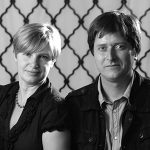
Opening Speech:
Maja & Reuben Fowkes
Maja and Reuben Fowkes are curators, art historians and co-directors of the Translocal Institute for Contemporary Art, a centre for transnational research into East European art and ecology based in Budapest that operates across the disciplinary boundaries of art history, contemporary art and ecological thought. Their work has focused on the theory and aesthetics of East European art from the art production of the socialist era to contemporary artistic practices, while their interests within the field of art and ecology have entailed investigation of environmental art history under socialism, visual cultures of the Anthropocene, the position of art within the environmental humanities, and the intersections of contemporary art with plants, animals, rewilding, the biosphere and beyond-human anthropology.
They hold PhDs from University College London and Essex University respectively, and work on the art history of Eastern Europe since 1945, environmental art history, as well as contemporary art and ecological thought. Recent publications include MajaFowkes’sThe Green Bloc: Neo-Avantgarde Art and Ecology under Socialism (CEU Press, 2015) and River Ecologies: Contemporary Art and Environmental Humanities on the Danube (Translocal Institute, 2015). Reuben Fowkes is an editor of Third Text, and currently preparing a special issue on East European art of the 1960s and 70s. Their forthcoming contributions include a chapter on alternative art of the 1980s in Eastern Europe for the Afterall Exhibition Histories series and a journal article on the Danube and contemporary art for Geo-Humanities. Their curatorial projects include the Experimental Reading Room (2014-6), the River School (2013-15) and the exhibition Walking without Footprints (2016). They are currently visiting lecturers at Central European University where they teach a course on Visual Cultures of the Anthropocene for the Environmental Humanities Initiative.
www.translocal.org
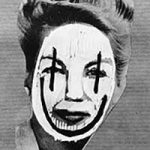
Speaker: Anna Maria Hällgreen
Anna-Maria Hällgren (1983) holds a PhD in Art History and is currently a post doctorial researcher at Stockholm University, Sweden. In her ongoing project, “Unfolding the velocity of time: Experiments with the Anthropocentric notion of time”, she explores how dominating notions of time are being rethought and redone within contemporary art today. She has previous been working as a lecturer at the University of Stockholm, the University of Uppsala and at Södertörn University, specialized in visual studies, urban culture and media studies.
As a visual artist, she is also exploring the connections between academic research and artistic practice, most recently as an artist in residence at Zentrum für Kultur und Urbanistik in Berlin, Germany. Her artistic production involves diverse formats such as sculpture, drawing and trans-disciplinary mediums and touches upon questions about knowledge, memory and the notion of truth.
www.annamariahallgren.com
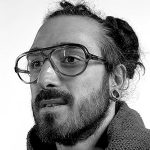
Mitra Azar
Mitra Azar is an eclectic schizo-nomadic video-squotter and ARTthropologist with a background in aesthetic philosophy. Mitra admits to be haunted by images and by the relational-performative-philosophical aspect of engaging with them.The idea of border as fluid, flexible, amorphous entity and the political role of art and digital technologies within the frame of an aesthetic of crisis and of mass events have been the framework of his practice based research. Since almost 10 years Mitra has been living as a nomad and has been building an archive of site specific works in some of the most controversial areas of the planet, in the context of socio-political, cultural and ecological struggles, mainly through the lens of visual anthropology, art, and media philosophy. The materials of his research have been exhibited worldwide as single pieces or in the frame of live cinema performances.
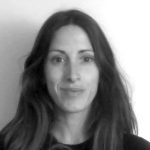
Speaker: Joana Moll
Joana Moll is an artist and researcher. Her work critically explores the way post-capitalist narratives affect the alphabetization of machines, humans and ecosystems. Her main research topics include communication technologies and CO2 emissions, virtual civil surveillance and language. She has presented her work in several venues and publications around the world. Furthermore, she is a member of the transdisciplinary research project Antiatlas des Frontières and co-founder of The Institute for the Advancement of popular automatisms. She has collaborated with several art-science research projects at IMÉRA, Aix-Marseille Université and Universitat Pompeu Fabra amongst others. Currently she is a researcher in residence at HANGAR and a visiting lecturer at VIT lab in Vic, Barcelona.
www.janavirgin.com
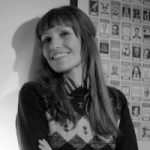
Speaker: Laura Benítez Valero
Laura Benítez Valero is member of the teaching staff of EHEA Official Master’s: Research Master in Art and Design (EINA), researcher and independent curator based in Barcelona. She holds a PhD in Philosophy, specialised in Bioart. Over the past six years she has worked as a teaching fellow and researcher, being a member of various R & D projects. She has collaborated with HANGAR in the document of the Protocol for Interdisciplinary Research. Currently she is developing a research project on bio-resistance, and has curated a seminar entitled Bio-resistance, Transversality and Emancipation on contestational practises and bio-hacking (MACBA, December 2015). Recently she has conducted the course Bioart. The Human Condition in the Contemporary Art as part of public programs of +HUMANS exhibition (CCCB 2016). Her research is focused on disturbances, contestational practices and theories, where Ethics, Identity, Gender, Subjectivity or Politics, are understood as not pre-determined but always changing and unfolding.
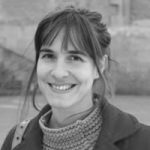
Speaker: María Heras
María Heras is a sustainability researcher at the Institute of Environmental Science and Technology (ICTA-UAB) and a participatory theatre practitioner. She holds a PhD in Environmental Sciences and Technology, through which she explored the potential of participatory theatre for sustainability transformations and research. Her research interests focus on social learning, participatory action-research methods and the potentials of Art/Science hybrid experiences for transdisciplinary dialogues and sustainability transformations. She has also research experience on the fields of food sovereignty and the agro-industrial food system conflict, sustainable consumption and lifestyle changes towards more sustainable futures. As a theatre practitioner, she’s been trained in the techniques of Augusto Boal’s Theatre of the Oppressed, social theatre, experimental theatre, poetic body and corporeal mime. She is currently working in the PERFORM H2020 research project exploring the impact of participatory educational processes based in performing arts in students’ learning about and engagement in science. She is also actress and coordinator of the theatre company Projecta Teatre Social (Barcelona, Spain), since 2008.
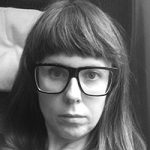
Speaker: Aleksandra Jach
Aleksandra Jach works as a curator at Muzeum Sztuki in Łódź. She is also PhD candidate in Environmental Humanities at University of Warsaw. Recent exhibition projects include “Cleaning Carpet” (with Maciej Cholewiński, 2011); “Construction in Process 1981: A Community That Came?” (with Anna Saciuk-Gąsowska, 2011); “Eyes Looking for a Head to Inhabit” (with Katarzyna Słoboda, Joanna Sokołowska, and Magdalena Ziółkowska, 2011); “Testing (re)production” (with Katarzyna Słoboda, Magdalena Ziółkowska, 2013); “Labour in a Single Shot: A Project by Antje Ehmann and Harun Farocki” (with Joanna Sokołowska, 2013); “If Only the Eyes Could Lie,” Krakow International Festival of Theatrical Reminiscences, 2013; “Apple. An Introduction. (Over and over again): Antje Majewski, Paweł Freisler and Fundacja Transformacja, feat. Jimmie Durham, Grzegorz Hodun, Kooperatywa Spożywcza w Łodzi, Miejskie Darcie Pierza, Agnieszka Polska, Piotr Życieński” (with Joanna Sokołowska, 2014); “Avant-garde and Socrealism” (with Marta Olejniczak, Piotr Olkusz); and “Everything Is Connected to Everything Else,” Festival of Literary Translators in Gdańsk (2015).
www.theanthropoceneindex.com
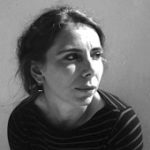
Speaker: Marta Dahó
Marta Dahó (Milan, Italy, 1969) is freelance curator, researcher and teacher of History of Photography. BA in History of Art from the Universitat Autònoma de Barcelona (1995) and MA in Advanced Studies in Art History from Universitat de Barcelona (2012). Marta Dahó is currently working on her PhD thesis, a study of photographic practices related to the visibility and understanding of territory. She is an associate researcher at the Universitat de Barcelona Art Globalization and Interculturality (AGI) research group.
Since 1995 she has curated a significant number of exhibitions and editorial projects for internationally renowned institutions. As a freelance curator, she has worked on a large retrospective of Stephen Shore’s work for the Mapfre Foundation in 2014 (http://exposiciones.fundacionmapfre.org/stephenshore/es/), and the Graciela Iturbide retrospective (http://exposiciones.fundacionmapfre.org/gracielaiturbide/) in 2009, both widely toured in prestigious museums in Europe and Latinoamerica (Fotomuseum Winterthur, C/O Berlin, Huis Marseille, Pinacoteca São Paulo, the Museo de Arte Moderno in Mexico. Other curatorial projects also developed in the last years are Agroperifèrics (Centro Huarte), or proposals for festivals such as An Idea of Europe (FotoFreo, Australia), Talent Latent ’08 for Scan (Tarragona, Spain), Joy ¿? Joy. Spanish Contemporary Photography for the Festival di Fotografia di Roma.
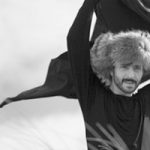
Speaker: Radek Przedpelski
Radek Przedpelski is a final-year PhD student in Digital Arts and Humanities at Trinity College Dublin. Together with Prof. Steve Wilmer he organised a hugely successful conference on Deleuze and art. Radek’s doctoral research probes onto-aesthetic thresholds of emergence, rhizomatic multiplicities and nonhuman mutations in neo-avant-garde practices of the 1970s via the process-oriented philosophies of Deleuze, Guattari, Simondon, Spinoza, Bergson, the seventeenth-century Polish Baroque and prehistoric artists of the Great Steppe. The key research question formulated in his PhD dissertation titled “Becoming-Sarmatian, Becoming-Steppe. Deleuzoguattarian Multiplicities | Thresholds | Potentialities and the Art-work of Marek Konieczny” is how we can articulate a politics of art and unleash its potential for metamorphosis. Radek holds an MA in Digital Media from DIT, where he specialised in Sound Design, as well an MA degree in Anglophone Literature and Culture from Nicolas Copernicus University, Toruń, Poland, where he specialized in Critical Theory. He is a freelance photographer and sound artist. His other research interests include aesthetics of inhumanism, metabolic germinal life and metallic vitalism in contemporary art practices, as well as (in) the Polish-Jewish avant-blues and the Lipka-Tatar rubaiyyat.
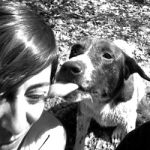
Speaker: Helena Torres
Helena Torres has worked as a sociologist in the education field. Nowadays, she works in the common grounds between language, art and politics, writing and creating collective interventions at public spaces through performances and geolocated narratives and literary soundwalks. Since 2011, she has worked on geolocated sound narratives, stories woven while wandering around a territory listening to recorded texts mixed with sounds, in a way that each person creates a specific narrative depending on their itinerary and their physical experience.
Since 2014, she has focused on two publishing projects: Relatos Marranos (Pol·len, 2014), an anthology of postporn short stories and poems written by feminist activists, artists, writers & non-writers that brings together different sexuality issues in a wide range of genres; and Ciutat Morta. Crónica del caso 4F (M.Huidobro, 2016), a collective chronicle of the tragical state repression suffered by two queer closed friends told as a navigation in a maze whose Ariadna’s threads are irony, metaphors, poems, illustrations, testimonies, official documents and sociological & political analysis. She now runs workshops on performative readings of the Chthulucene Manifesto from Santa Cruz by Donna Haraway, to foster illegitimate offsprings, such as a collective performative reading which took place at Rencontres Bandits Mages (November 2016) and another one which will be held at the International Festival of Video and Electronic Art Transtio_MX (Mexico/2017).
www.helenatorres.wordpress.com
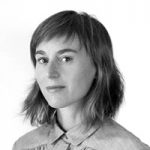
Speaker: Fiona Curran
Fiona Curran is an artist based in London and a Senior Tutor in the School of Material at the Royal College of Art, she is currently completing a PhD at the Slade School of Fine Art, UCL titled: “Towards a Fractured Topography of the Present: Art, Ecology and The Political Economy of Speed.” Fiona’s work explores the poetics, politics, and materialities of landscape space across the making of objects for exhibition, site-related installation, writing and teaching. Fiona has exhibited her work widely in the UK and Internationally. Recent commissions include: The grass seemed darker than ever, for Kielder Forest in Northumberland, UK; An accident looking for somewhere to happen, for Art Across the City in Swansea, UK and This time next year things are going to be different for The Tatton Park Biennial, UK. Recent exhibitions include No Matter, New Matter, Ed.Varie, New York; Promise of Palm Trees, Breese Little, London; Beach Fatigue, Carslaw St* Lukes, London; Situation, RMIT, Melbourne; Detail, H Projects, Bangkok and Riff, Baltic39, Newcastle.
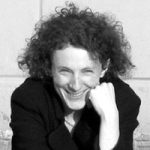
Speaker: Christine Mackey
Christine Mackey employs a diverse range of creative disciplines, subject matter and tactics to explore the interactive potential of art as a research and pedagogical tool that informs social and environmental change. She has participated on a range of international and national residency/exhibition programmes including: As Above So Below, ACA, Allenheads/MigAA, Berlin; Delfina Foundation, London; Agora Collective, Berlin and Utopiana Genève, Switzerland (2015). Recent solo exhibitions include Provisional AC Institute, New York (2015) and SEED MATTER, Limerick City Gallery of Art (2013). Group exhibitions include Centre Culturel Irlandais, Paris; Delfina Foundation, London; and Oriel Myrddin Gallery, Wales (2015). Mackey has been in receipt of Individual Artists Bursary Awards from the Arts Council of Ireland, Leitrim County Council and Culture Ireland.
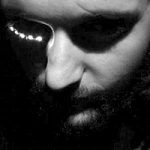
Speaker: Pablo de Soto
Pablo de Soto is a researcher and artist. He holds a PhD in Communication and Culture from the Federal University of Rio de Janeiro (2016), with the thesis entitled “Anthropocene, Capitalocene, Chthulucene, staying with the trouble in Fukushima”, based on a field work conducted as an artist in residence in Tokyo Wonder Site, thanks to a grant by Hangar Art Center Barcelona. He holds a Master’s Degree in Architecture from the Royal Institute of Technology in Stockholm. Editor of the books Fadaiat : freedom of movement, freedom of knowledge, and Situation Room: designing a prototype of a citizen’s situation room. Co-author of the Critical Cartography of the Strait of Gibraltar, exhibited internationally. Winner of the LAB_Cyberspaces and LAB_ExperimentaJoven awards by LABoral Art Center of Gijón. During the 2000s he was cofounder of hackitectura.net, exhibiting their works in the Seville Biennial, ZKM Center for Art and Media and LABoral. Coordinator of the projects dronehackademy.net and mappingthecommons.net, awarded the Elinor Ostrom Prize in research on commons by the University of Buenos Aires. Artist in residency grant Townhouse Gallery Cairo. He is coeditor of the video book AfterVideo:assemblages to be published at the end of this year by Open Humanities Press London.
www.pablodesoto.org
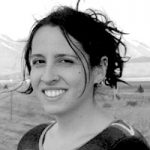
Speaker: Ila Nicole Sheren
Ila Nicole Sheren is Assistant Professor of Art History in the Department of Art History and Archaeology at Washington University in St. Louis. She received her doctorate from the Massachusetts Institute of Technology’s Department of Architecture in 2011. Prof. Sheren’s research considers the intersections of contemporary art and political issues, and her first book, Portable Borders: Performance Art and Politics on the U.S. Frontera since 1984, was published by the University of Texas Press in 2015. Her current project, Mediated Landscapes: Eco-Art between the Virtual and the Material, takes up the question of digital art and environmentalism, placing recent eco-art interventions in dialogue with new materialist, postcolonial, and post-human theory.
Venue
MACBA, Museum of Contemporary Art, Meier Auditorium
Plaça dels Angels 1, 08001 Barcelona
www.macba.cat
“DEFOOOOOOOOOOOOOOOOOOOOOREST” (detail), Joana Moll
www.janavirgin.com
© From the text, Christian Alonso
www.caosmosis.net
